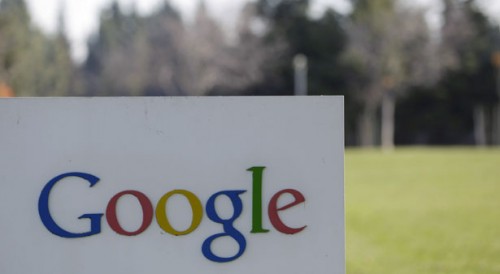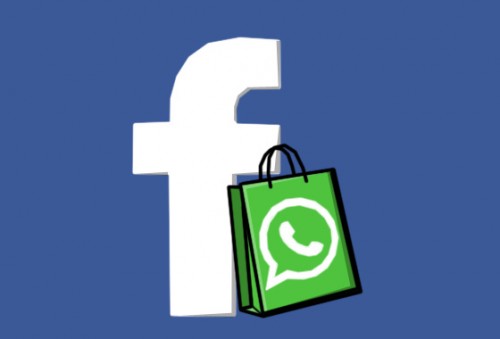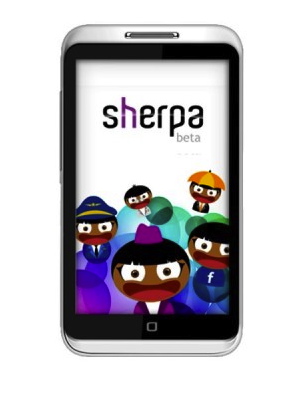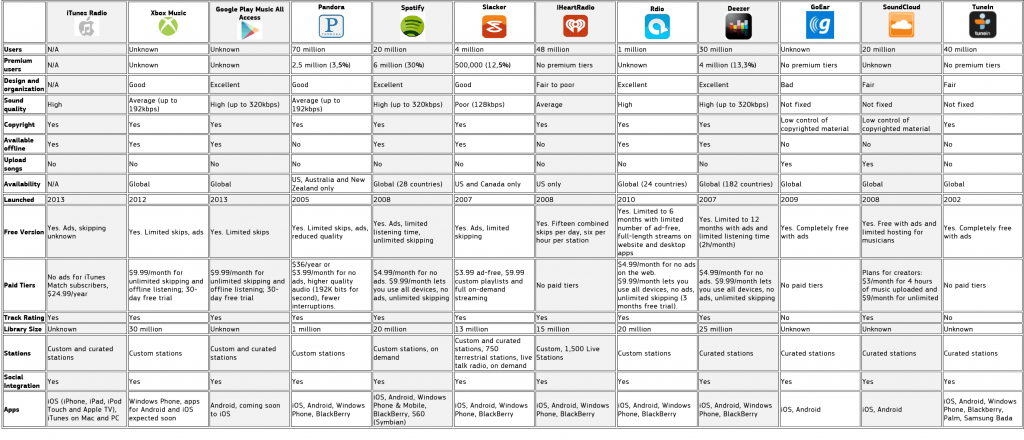2017 24
Quality of the 70s with quantity of the 10s
Published by MartinVarsavsky.net in Gramofon with
When I was a child we had vinyl records and CDs but no music streaming services. We had Nikon, Canon and Leica cameras and lenses slow chemical photography, no Instagram. When I was a child we had paper books, no Kindle. No Netflix, to see movies you had to go to a movie theater. When I was a child we had less experiences, but surprisingly, we also had much better quality experiences. Now we live in an era in which everything is accessible in your smartphone or tablet. But the question is, at what quality? For example, people are uploading childhoods to Instagram. But how good will those pictures look when kids grow up? Or you get Alexa to play your music and you have an endless music library with Spotify which is awesome. But the quality of that music? Can you compare an Alexa speaker to a sound systems of the 70s? And now we can watch any movie on Netflix on our iPhone, but how does that compared to going to a movie theater? What we have done is trade quality for convenience in a gigantic scale.
As a result we got a huge backlash, a back to quality movement represented by hipsters. Hipsters see that paper books read better than books on your iPad, or that vinyl records in sound better than a Google Home speaker, or that a picture taken with a reflex camera is better than your Instagram filters on your Samsung. But Hipsters miss out on what is great about mobile, access. Personally I have been thinking about the quality deterioration paradox trying to achieve both, the quality of my childhood with the awesome ubiquity of today. And I have good news here, you can get both!
Examples, we got an amazing projector in our bedroom equivalent to that of a movie theater, a remarkable sound system streaming high quality music. I have been using new digital cameras like the Sony A7 series with old Leica lenses and obtaining great digital photography results. I have been working on projects like Gramofon in which you incorporate digital music streaming to old sound systems and obtain the best of both worlds, an endless music library with great sound. I don’t want to settle for a world in which everything is plentiful but of terrible quality. I think with some work and investment, we can achieve ubiquity and quality.
2015 22
Vodafone becomes the new Fon partner in Spain and Italy
Published by MartinVarsavsky.net in Fon with
 Today is a very special day for me and everyone else at Fon. I am happy to announce the Vodafone and Fon partnership, to expand the Fon network in Spain and Italy.
Today is a very special day for me and everyone else at Fon. I am happy to announce the Vodafone and Fon partnership, to expand the Fon network in Spain and Italy.
When I started this company 9 years ago, I was motivated by a problem I encountered on a trip to Paris. I desperately needed to use WiFi, but I could not find any open WiFi signals. So, I started Fon with a mission – to cover the world with accessible WiFi.
Since then, Fon has grown from that idea to the world’s largest WiFi network. We have built that network together with leading telcos around the globe. Today, you can find dense Fon WiFi coverage in most countries in Europe, Brazil, and Japan – and we recently announced the extension of our footprint to Australia.
We have been preparing the Vodafone-Fon partnership for a long time, and today I can proudly say that Spain will soon be covered with dense Vodafone-Fon WiFi. We will also finally cover Italy, a country that I love and have had close ties to since my youth.
This achievement is extremely gratifying, as I have fulfilled a promise I made to many loyal Foneros and Fon supporters.
It is an honor to welcome Vodafone to our network of partners. Vodafone has been leading innovation in telecommunications for decades. Working together with Vodafone on their WiFi strategy is a big step forward for Fon and for WiFi overall. Together we will continue to explore ways to expand our footprint further and work on an optimal interaction of LTE and WiFi.
Vodafone customers can also be excited. People need to be constantly connected whether at home or on the go. With the increasing data consumption of mobile devices, and rapid growth of WiFi only devices, ubiquitous WiFi becomes the perfect complement for 3G/4G!
I would like to thank the Fon team for their hard work in making this happen. Over many years, people at Fon have worked tirelessly on implementations all over the world. Though our technology is “made in Spain”, employees had to go abroad to enjoy the fruits of their labor and see what it means to experience dense Fon WiFi coverage. That will change with extensive coverage at our doorstep.
Fon has almost 15 million WiFi hotspots globally. With Vodafone Italy and Spain, we will add more than 2 million hotspots before the end of the year. With this new partnership and the growth of our existing partnerships I am confident, that we will be able to reach 50M hotspots globally in few years.
Our mission remains. Vodafone-Fon takes us a huge step closer to blanketing the world with accessible WiFi.
Thanks for all of your support!
I am struggling to learn German. It is not reading and writing, which surprisingly is easy in German. German like Spanish and as opposed to French or English, has clear rules of pronunciation. What is hard, really hard, is to understand German, and this is not only because of the vocabulary and phonetics but mainly because of the grammar. So as I struggle with German grammar I wondered if computers would find the challenge equally daunting. I did a number of random translations using Google and Bing from German to English and from Spanish to English and voilá! translation engines also failed. Translations made from Spanish to English are of much better quality than from German to English. Here are some examples. You can replicate my tests even if you don’t speak Spanish or German, just input the original text in the translators and see which translations sound better in English.
Random paragraph from Die Welt
Der Ausbau der Fotovoltaik ist in Deutschland zwar ins Stocken geraten. Doch in dieser Woche feierte die Agentur für erneuerbare Energien noch einmal die gewaltigen Ausmaße der Solarstromproduktion, die Deutschland mithilfe üppiger Subventionen inzwischen aufgebaut hat.
Google Translator
The expansion of photovoltaics is indeed stalled in Germany. But this week, the agency celebrated for renewable energies once again the enormous size of the solar power production, Germany using lush subsidies has been able to build.
Bing Translator
The expansion of photovoltaics is advised while in Germany stalled. But this week, the Agency for renewable energies once again celebrated the huge proportions ofthe solar power production, which Germany has now built using abundant subsidies.
Random Paragraph from El Pais
Metroscopia detecta un claro cambio de opinión entre los ciudadanos respecto a la amenaza del terrorismo yihadista después de los atentados de París contra la revista Charlie Hebdo, que causaron un gran impacto en todo el mundo y también en España.
Google Translator
Metroscopia detected a clear change of opinion among citizens regarding the threat of jihadist terrorism after the attack of Paris against the magazine Charlie Hebdo, which caused a big impact around the world and also in Spain.
Bing
Metroscopia detects a clear change of opinion among the citizens about the threat of jihadist terrorism after the attacks in Paris against the magazine Charlie Hebdo,which caused a great impact worldwide and also in Spain.
2014 25
Netflix nailed it, now others please follow
Published by MartinVarsavsky.net in Internet & Technology with
Netflix said I would love In a World and I loved In a World. But IMDB gives it a low rating. This says something about Netflix’s success as a recommendation engine. I don’t care what others think about a movie. I want to know if I will like a movie or not. And Netflix nails it for me. I wish there was something like Netflix for restaurants. Like my palate is so different from the average Trip Advisor restaurant reviewer that I find the app useless. Indeed my palate is quite different from that of many of my friends also, and so are other tastes like music. I think friends are an indication of what you may like, but not always and recommendation engines that are purely friend base fail for that. I find it interesting and useful that Netflix does not rely on my friends to give me recommendations. Non personalized recommendations work for people with average taste, they work when there is a lot of conformity. But if you differ from the mean you need a personalized recommendation engine. And that is Netflix for me, now what Netflix does for movies and TV series I want for:
People I can work with
Novels
Clothes
Sailing destinations
Art Galleries
Mountain bike rides
Restaurants
Neighborhoods in a new city
Museum exhibits
Music
Web sites
Children activities
Food stores
Consumer products
Conferences
Online Youtube/Vimeo type videos
Concerts
2014 8
Is Google abusing its monopoly power?
Published by MartinVarsavsky.net in Internet & Technology with
Twitter used Twitter clients to grow and then combined their innovations and traffic with its own and dumped their clients. Awful but legal. I invested in one, Seesmic and lost my investment. Google used the Internet as a whole to grow and now it is evolving from a search engine to an answer provider. Weather, flights, Wikipedia type info, many searches are now not linked by Google but answered by Google. As a result sites that helped build Google are now losing traffic. People don’t just start at Google, they now start and end at Google. Google is not happy anymore with organizing the world’s information, it wants to provide it. The US antitrust authorities are fine with this. The EU not so, and is looking into this as a possible abuse of monopoly power. The Economist this week has an article exactly on this issue and the view of many German companies. One of them is Axel Springer whose board I serve on. But then Google is also on my board at Fon. So in terms of disclosures I am somewhere in between. I also know both sides of the argument well.
 Personally I am hesitant on what the EU should do. On one side Google built a de facto monopoly on search by linking to everyone else more accurately than others. At that Google did an awesome job. Other search engines died or lost market share because Google is just better. But is it fair to grow via say, Kayak or Expedia, and then replace them with your own flight search engine that comes as the top result even when it is not the top destination? This move certainly hurts Kayak and Expedia, but does it hurt consumers? Monopolies are broken up because they hurt consumers. It is hard to argue that Google is hurting consumers by providing its answers directly and going to the same suppliers as Kayak and Expedia to get the information. Especially when people prefer to get an answer rather than clicking again on a second link. But aside from what is fair, one thing is clear: if you built a business by receiving traffic from Google you should rethink your strategy or you will end up like a Twitter client. Aware of this, one company took a radical step and so far it paid off: Facebook. It stopped Google from searching it. It closed its content to Google’s “crawlers”. Unfortunately Facebook hasn’t come up with a good search engine itself, and finding whatever you once wrote on Facebook is almost impossible. So as a consumer I wish I could search my Facebook as easy as I search my Gmail, or the Internet as a whole.
Personally I am hesitant on what the EU should do. On one side Google built a de facto monopoly on search by linking to everyone else more accurately than others. At that Google did an awesome job. Other search engines died or lost market share because Google is just better. But is it fair to grow via say, Kayak or Expedia, and then replace them with your own flight search engine that comes as the top result even when it is not the top destination? This move certainly hurts Kayak and Expedia, but does it hurt consumers? Monopolies are broken up because they hurt consumers. It is hard to argue that Google is hurting consumers by providing its answers directly and going to the same suppliers as Kayak and Expedia to get the information. Especially when people prefer to get an answer rather than clicking again on a second link. But aside from what is fair, one thing is clear: if you built a business by receiving traffic from Google you should rethink your strategy or you will end up like a Twitter client. Aware of this, one company took a radical step and so far it paid off: Facebook. It stopped Google from searching it. It closed its content to Google’s “crawlers”. Unfortunately Facebook hasn’t come up with a good search engine itself, and finding whatever you once wrote on Facebook is almost impossible. So as a consumer I wish I could search my Facebook as easy as I search my Gmail, or the Internet as a whole.
And as far as being a monopoly, to me monopoly is something like Time Warner Cable, if you live in NYC and want Cable TV there’s no other choice than Time Warner Cable. Search engines? There are others. Yahoo, Bing. Google is where it is not because somebody gave them a franchise, but because of how good it is, a position that Google has to defend every day. Would I watch Google if I was a regulator? For sure. Would I stop them? Only if there is harm to consumers.
(Photo credit: The Nation)
2014 24
Facebook is now worth more than Amazon and Coca-Cola
Published by MartinVarsavsky.net in General with

Much to the surprise of many, Facebook is now worth more than Amazon, IBM, Coke, it is the 15th most valuable company in the world. Some may call it a bubble, a crazy P/E, but however way you look at it Facebook is hugely successful. This is in my view a key reason for their success.
One of the most common criticisms of Facebook is that there is a bias towards positive news. That people tend to post many more good things than bad things that are happening to them. That few post such things as “my life sucks and I don’t know where I will get the energy to go to my boring job tomorrow”. But maybe that is actually a significant part of the success of Facebook and why it is so popular, the tendency towards good news. What Facebook made clear is that people wanted good news. The alternative to Facebook is media news and they have exactly the extreme opposite bias. In media almost all news is bad news. After a lifetime of bad news people were craving for a new form of media focused on positivity. And friendship was the missing link to make positivity feel real. It is the combination of proximity and positivity that makes people want to be on Facebook. Facebook nailed it and is now worth close to $200bn.
(Photo: WebProNews)
2014 20
Is WhatsApp worth $19bn? It is to Facebook and here’s why
Published by MartinVarsavsky.net in General with
 The WhatsApp acquisition price sounds high, sky high, crazy high. But it’s not if you put yourself in Zuckerberg’s shoes and think about it in these terms: Facebook bought a network that was a real threat to its existence, that is growing much faster than itself (growth drives valuations) and has almost half as many members already, for only 10% of its value. And it prevented it from going to Google. So from this perspective $19bn in Facebook minted currency makes sense. If you call WhatsApp a better SMS system, hence an attack on the telco industry, on size alone, it is as big as half of all the texting that goes on in the world. SMS, as Facebook said in its investor conference after the acquisition, is a $100bn industry. Where are Facebook/WhatsApp headed? In my view towards doing with telephone minutes what WhatsApp already did with SMS. WhatsApp killed the I-bill-you-by-text-message telco model. I would not be surprised if WhatsApp next move is to kill the I-bill-you-by-the-minute model. It is not reasonable that Facebook, which wants to connect everyone on the planet, still does not have a platform for people to have actual conversations a la Viber or Skype. I can’t imagine that things will stay this way. And owning the world’s texting and the world’s conversations may very well be worth $19bn.
The WhatsApp acquisition price sounds high, sky high, crazy high. But it’s not if you put yourself in Zuckerberg’s shoes and think about it in these terms: Facebook bought a network that was a real threat to its existence, that is growing much faster than itself (growth drives valuations) and has almost half as many members already, for only 10% of its value. And it prevented it from going to Google. So from this perspective $19bn in Facebook minted currency makes sense. If you call WhatsApp a better SMS system, hence an attack on the telco industry, on size alone, it is as big as half of all the texting that goes on in the world. SMS, as Facebook said in its investor conference after the acquisition, is a $100bn industry. Where are Facebook/WhatsApp headed? In my view towards doing with telephone minutes what WhatsApp already did with SMS. WhatsApp killed the I-bill-you-by-text-message telco model. I would not be surprised if WhatsApp next move is to kill the I-bill-you-by-the-minute model. It is not reasonable that Facebook, which wants to connect everyone on the planet, still does not have a platform for people to have actual conversations a la Viber or Skype. I can’t imagine that things will stay this way. And owning the world’s texting and the world’s conversations may very well be worth $19bn.
What we have learned about Facebook is that Zuckerberg will pay whatever he has to pay to stop a rising competitor from eating his lunch. First Instagram, now WhatsApp. Moreover that he can live and let live, acquire and keep the acquired company in shape. Instagram is still pretty much the same product it was when it was acquired. WhatsApp is likely to evolve but on its own.
(Photo credit: MusicZine)
2013 3
Bought an iPad Air
Published by MartinVarsavsky.net in Internet & Technology with
 I am loving it. Nothing revolutionary but a much better iPad for the same money (we can thank Google for that, don’t want to think what Apple would be charging if Android was not also great). As promised the iPad Air is thinner, lighter, faster, sharper and with a better front camera. Where Android still beats iOS is in the freedom to put whatever keyboard you want (I love SwiftKey especially because it recognizes which language I am typing in), to put any WiFi manager (I use Fon’s), and in the ease to share anything from any app. I still don’t know why Apple makes sharing so hard. But the new iPad is not like when Apple went from the iPhone 4 to the 4S. It’s more like when the iPhone 4 came out. After the iPad Mini came out I found the iPad 2 too clunky. The iPad Air gives you a bigger screen, perfect to use while flying for example but a much lighter and thinner frame. Worth the upgrade!
I am loving it. Nothing revolutionary but a much better iPad for the same money (we can thank Google for that, don’t want to think what Apple would be charging if Android was not also great). As promised the iPad Air is thinner, lighter, faster, sharper and with a better front camera. Where Android still beats iOS is in the freedom to put whatever keyboard you want (I love SwiftKey especially because it recognizes which language I am typing in), to put any WiFi manager (I use Fon’s), and in the ease to share anything from any app. I still don’t know why Apple makes sharing so hard. But the new iPad is not like when Apple went from the iPhone 4 to the 4S. It’s more like when the iPhone 4 came out. After the iPad Mini came out I found the iPad 2 too clunky. The iPad Air gives you a bigger screen, perfect to use while flying for example but a much lighter and thinner frame. Worth the upgrade!
And if you want to learn about what is inside an iPad Air…
(Photo: NBC news)
2013 3
Siri on iOS vs Sherpa on Android
Published by MartinVarsavsky.net in Internet & Technology with
 I am currently testing Sherpa Assistant for Android vs Siri on Apple. I am doing this with my HTC One and my iPhone 5. So far everything I ask they respond equally, they are very similar products. Now these are some differences I found.
I am currently testing Sherpa Assistant for Android vs Siri on Apple. I am doing this with my HTC One and my iPhone 5. So far everything I ask they respond equally, they are very similar products. Now these are some differences I found.
Sherpa allows you to post on Facebook, LinkedIn and Twitter, Siri only on Facebook. Neither on Tumblr.
Sherpa allows you to change languages on the fly by saying change to Spanish, o cambia a inglés, Siri does not. This is especially useful for me.
Neither Siri nor Sherpa are integrated in any way with Amazon or eBay to shop but Sherpa allows you to input your PayPal account and pay for things, Siri does not.
In general I think both assistants should evolve into two different modes of operating, “blind” and “visual”. Blind would be when you are driving and it is dangerous to look at a screen; in that case, all results and interaction must be spoken only, as if you were truly blind. Indeed this method could be tested by blind people and be extremely helpful to them. Also this would allow for a computer whose only interface is a microphone and a speaker which in itself can be a fantastic tool.
![]() Then they should both operate in a visual mode meaning you speak and the mobile device shows you results on the screen and speaks back.
Then they should both operate in a visual mode meaning you speak and the mobile device shows you results on the screen and speaks back.
Also there should be some ways of communicating clearly that you want to operate inside an app as opposed to inside the app of Siri or Sherpa. For example I should be able to say, I would like to post this on Tumblr. Or say something like, take dictation, and then Siri or Sherpa take dictation and when you are done it reads it back to see that it got it right and then it asks you what you want to do with that text. You can then post it on email, Facebook, a blog, Tumblr, a note, etc. Mobile devices come in silos called apps. Sherpa or Siri have to be good for interacting inside their own app or for accessing these silos, and this is not well solved in either platform.
Now what is impressive about Sherpa is that it is being done by a 12 person team out of Bilbao, Spain and overall is a better product than Siri.
2013 5
On How I Gave Up On Music Piracy
Published by MartinVarsavsky.net in Internet & Technology with
It has been quite a while since I stopped downloading music. It’s not that I was afraid of getting caught for illegal downloads– in Spain, internet piracy is not a criminal offense. Instead, I gave up on downloading music, even in a country with few penalties for doing so, because cloud services are just better.
Downloading an mp3, whether legally or illegally, is slow, boring and expensive. Slow because it takes time to find a specific song, download it and then sync the songs with whatever device you want to use. Boring because the process (of downloading and paying) is tedious. And expensive because even though you don’t pay for the download, paying for CDs, hard drives or any other file-storage devices ends up being more expensive than any of the options in the table included above.
Listening to music from the cloud is the most recent trend in the world of online audio. That’s because it is fast, fun and cheap. You don’t have to wait to listen to what you want, be it online or downloaded onto your device via offline mode. It’s fun because cloud music has a social aspect in that you can see what your friends are listening to, get recommendations, read lyrics at the same time you are listening to the music and much more. And cheap because the prices, due to the high level of competition, is far lower than any external hard drive to store mp3s.
Pandora is the service with the most users – currently at 70 million. Behind them are iHeartRadio (48 million), TuneIn (40 million) and Deezer (30 million). It’s also worth noting the strength of premium memberships in Spotify: their 6 million premium subscribers make up roughly 30% of their total number of subscribers, making Spotify stand out among the rest.
All of the services I included in the table have a free version, and their restrictions are often the same: ads, a limited amount of song “skips”, lower audio quality, or limited amount of free listening time.
It’s in the paid versions where you notice important differences. The new iTunes Radio seems to be the best deal: for $25 per year it offers music without limits or ads. Pandora offers the same for $36 a year. For monthly subscriptions, the prices are quite similar. The cheapest is Pandora, which for $4 gives the best quality music without ads. Behind them is Spotify, which for $5 provides music without ads but without a mobile option. Monthly unlimited plans, for all devices and with no ads, do not drop below $10 in any of the platforms.
The size of the iTunes Radio music catalogue is still unknown, making the 30 million tracks available in Xbox Music the most attractive in terms of music variety. Pandora’s library is quite poor in comparison, with only 1 million songs.
Sound quality is surprisingly variable among the services, and many of the platforms don’t make this information public. Among those that do, Google, Spotify and Deezer claim the highest bit rate at up to 320kbps.
Another aspect worthy of noting is that of availability. The majority of the platforms analyzed are accessible to anyone, anywhere. Only Pandora, Slacker and iHeartRadio limit access – they are only available in the US, Canada, New Zealand and Australia.
Lastly, I took a look at the apps that each service provides. With our world becoming increasingly more mobile, most people only listen to music from their mobile device. Therefore my opinion is that any good music service should be available for all operating systems. Among the services I analyzed, Pandora, Spotify, Slacker and iHeartRadio can be found on all operating systems whereas iTunes Radio will only be available for iPhone users, Xbox Music can only be obtained through Windows Phone, and Google Play is only available for Android.
I personally prefer Spotify: it’s got great sound quality, an ample music library and apps that improve the user’s listening experience. For copyright-free music and DJ remixes I tune into SoundCloud.

